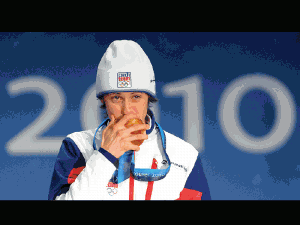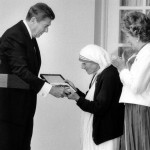 During the week since my last post on the subject of the Saint that I’m not, I’ve received a lot of comments and feedback, which I really love getting. Thank you sooo much for that.
During the week since my last post on the subject of the Saint that I’m not, I’ve received a lot of comments and feedback, which I really love getting. Thank you sooo much for that.
Special among them was an email from Eric, a young man who it is my privilege to call my friend. Eric is really, really smart, but much more important than that, he is sensitive, loving and wise…way, way beyond his years. Eric is 18. When I read his emails to me, think about the things that are on his mind, and remember the things which were on my mind at 18, it actually takes my breath away.
I asked for, and received his permission to share the relevant parts of our back and forth, so voila:
“Hey Michael,
I really liked your blog this week, as I’ve had very similar experiences distributing sandwiches to people on the streets here. But my interpretation of reactions like that is different (or maybe it’s part of the same phenomenon).
I think it has to do with the “humiliation” of accepting soup in a soup kitchen or a sandwich from Sandwichs Volants. Even though those of us who are handing out food are not consciously looking down on these people, the fact is that you’re in a position of power over them. For that meal, they are dependent on you.
I imagine that that lady’s impoliteness was an expression of her discomfort or shame due to that strange giver-receiver relationship.
Because, even when we are trying to do good for the right reasons, it can sometimes seem and feel (either to ourselves or to others) like an ego-trip (I wonder about this a lot when I’m distributing sandwiches: I really, really want to be meeting people and helping them out because it feels good, but isn’t there a hint of self-congratulation in me when I’m doing it?). Please let me know if you find this suggestion offensive, or just plain wrong.
…“I don’t know how you feel about this, but I found that spending time trying to identify and get rid of harmful thoughts and words and actions only made me super-conscious of the self-centeredness of everything I do. Even when I was doing something that felt right and that seemed ethical (sandwichs volants, for instance), I found I was always second-guessing my motives. And as much as I try, pure action is beyond this tangle of thoughts.”
Love,
Eric”
“Sweet Friend,
I love hearing from you. You offer so many worthy topics to think on. Also, I’m flattered that you read my blog.
Second guessing your motives for everything you do (let alone everything you think), seems over the top. By all means, of course get clear on your intention before you say or do something, but after that, that’s enough. If we keep going beneath…the beneath…the beneath…on everything, maybe we’ll get trapped down there, or stuck in paralysis mode. Instead, why not give yourself permission to be human?
On “action without gaining idea”, I offer this story:
This young dude arrives at the gates of the Zen Monastery and asks to see the master. Granted an audience, he tells him “I want to attain realization. I want this very, very much. I will work very hard and obey all your instructions and teachings. How long will it take me to be realized?” The master eyes the boy and answers “Ten Years.” The student responds: “You don’t understand my burning desire. If I really kill myself working, studying, meditating, if I strive night and day without ceasing my effort. How long then?” “Ahh”, said the master, “now I understand. In that case, Twenty years.”
I think it will take twice as long because the student has one eye (half his attention) on the prize instead of both eyes on the work and on the journey. I love this little story. It’s so juicy. Feel free to add your own meaning(s).

The Zensters always talk about the concept of “pure action”, wherein the doer vanishes totally into the deed. I think our young Czech athlete pictured here came pretty darn close to this ideal, (although she does look pretty pleased with her medal and herself, no? And who can blame her?)
My teachers at Zen Center frequently ask: “do you have a ‘gaining idea’ in your practice, or are you doing it for it’s own sake?” I ask: Is this even possible, or is this just a concept? I wonder about their practices – indeed, about any action at all.
Did Mother Teresa have no “gaining idea” in her work? No satisfaction from her life of service? And if she did feel happy because of her service, (as you or I do from our service), what’s wrong with that? Indeed, is it possible not to feel happy to relieve suffering?
 And even if receiving them made her happy, should Mother Teresa have refused to accept the US Medal of Freedom, the Nobel Prize, and all her other numerous awards? Should she have refused to accept money for her work from any number of donors with “unsavory” reputations for which she was criticized?
And even if receiving them made her happy, should Mother Teresa have refused to accept the US Medal of Freedom, the Nobel Prize, and all her other numerous awards? Should she have refused to accept money for her work from any number of donors with “unsavory” reputations for which she was criticized?
I’m betting that the biggest part of her “gaining idea” was the part about relieving of sickness and starvation; and if I were able to ask her about all this she would likely answer that she saw all the awards as a vehicle for publicizing, hence advancing the work. Insofar as all that “dodgy” money, her response would doubtless be: “ Who am I to judge anyone, or what
they do? That’s God’s business. I would take money from Satan himself if I could buy more cures and food.”
After every Dharma talk at Green Gulch we recite the 4 Bodhisattva vows:
Beings are numberless; I vow to save them.
Delusions are inexhaustible; I vow to end to them.
Dharma gates are boundless; I vow to enter them.
The Buddha Way is unsurpassable; I vow to attain it.
What possible sense does it make to vow to achieve such worthy goals all the while understanding that they are impossible – if not for the benefit we gain in simply striving for them?
I do agree that in some (not all – not even most) of our guests at Martin’s, and your clients too, there likely is a “humiliation factor” in accepting help. We need to be aware of that for sure, but that is their issue, not ours. For me, I think of our relationship as mutuality. We need each other for the work to happen.
Perhaps we could refer them to Portia’s famous oration in Shakespeare’s Anti Semitic rant, “The Merchant of Venice:
“The quality of mercy is not strain’d,
It droppeth as the gentle rain from heaven
Upon the place beneath. It is twice blest:
It blesseth him that gives and him that takes.”
On this last point, my dear friend Charlie (having read my last post), and who runs Martins with the help of a very dedicated core group of beautiful souls handed me this quote from St Vincent de Paul last Thursday. It speaks to this very point. Clearly, there is nothing new in any of this, and what happened to me was not at all unusual:
“You will find out that charity is a heavy burden to carry, heavier than the kettle of soup and the full basket.
But you will keep your gentleness and your smile. It is not enough to give soup and bread. This the rich can do. You are the servant of the poor, always smiling and good humored. They are your masters, terribly sensitive and exacting masters you will see; and the uglier and dirtier they will be, the more unjust and insulting, the more love you must give them.
It is only for your love alone that the poor will forgive you the bread you give to them.”
St Vincent de Paul
Dear Eric, please be kind to yourself, and you too dear reader,
Metta,
Michael